Agent Orange victims suffering from serious illnesses, deformities, disabilities, and intellectual disabilities will be supported to improve their quality of life indicators.
The information was shared by a representative of the United States Agency for International Development (USAID) at a workshop to promote the implementation of the project Supporting the improvement of the quality of life of people with disabilities in provinces heavily sprayed with Agent Orange, on November 28.
According to the Ministry of Defense , during the period 1961-1971, the US military's Ranch Hand campaign sprayed about 80 million liters of herbicides over 2.63 million hectares of South Vietnam. Of this, Agent Orange accounted for about 60%. About 2.1-4.8 million people were exposed to Agent Orange/dioxin.
When in contact with the body, dioxin penetrates directly into the skin, subcutaneous tissues; soft tissues, especially adipose tissue and connective tissue; blood, milk, endocrine system, reproductive organs. The toxin also penetrates the liver, lungs, peripheral and central nervous systems.
In the human body, dioxin causes reproductive cell toxicity, causing infertility, miscarriage, malformations, and reproductive control disorders, and causing cancer. Cancers related to dioxin include soft tissue cancer, leukemia, respiratory cancers such as larynx, trachea, multiple myeloma, prostate, placental cancer, bladder, liver, etc. Many international organizations have invested and cooperated with Vietnam to research dioxin and cancer. The results all found a relationship between liver cancer, lymphoma, soft tissue cancer, placental cancer and dioxin.
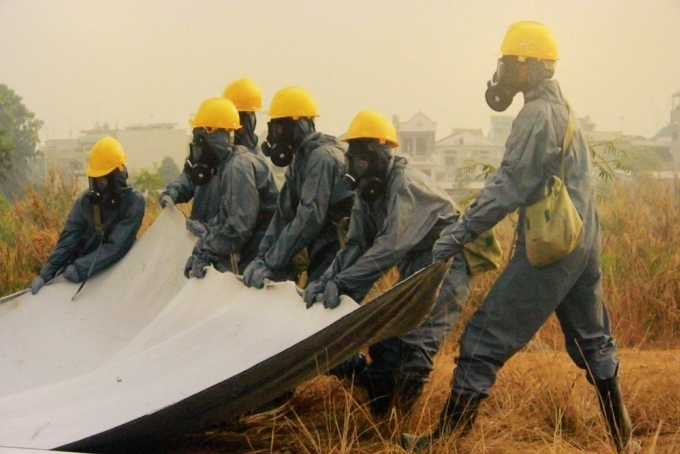
Chemical soldiers use specialized materials to treat Agent Orange at Bien Hoa airport, Dong Nai in 2014. Photo: Vo Thanh
Launched in 2021, the USAID-funded Inclusion project works with the Vietnamese government , local organizations, and the private sector to support people with disabilities. The project strengthens rehabilitation systems and community support networks in Vietnam to ensure that all people with disabilities have the opportunity to fully participate in society and improve their overall quality of life.
The new goal of the project is to improve the quality of life of people with disabilities in Bac Lieu, Ca Mau and Quang Ngai provinces. Accordingly, in the next phase, it is expected that about 15,000 people with disabilities will receive direct support, of which 75% (about 11,250 people) will improve their quality of life indicators. 18,000 family members of people with disabilities will be trained or receive appropriate support. Victims will be provided with health care services, rehabilitation, speech therapy, assistive devices, etc.
In addition, the project will expand social services, enhance social inclusion support, reduce barriers, and ensure social inclusion of people with disabilities.
Previously, the project was implemented in 8 provinces including: Quang Tri, Thua Thien Hue, Quang Nam, Binh Dinh, Kon Tum, Binh Phuoc, Dong Nai, Tay Ninh. By the end of November 2022, nearly 12,000 people with disabilities and victims of Agent Orange/dioxin had been screened; about 5,200 people were supported, about 3,500 people received rehabilitation intervention.
Le Nga
Source link



![[Photo] A delegation of 100 journalists from the Vietnam Journalists Association visits the soldiers and people of Truong Sa island district.](https://vphoto.vietnam.vn/thumb/1200x675/vietnam/resource/IMAGE/2025/5/30/0984a986227d4e988177f560d2e1563e)
![[Photo] Journalists moved to tears at the Memorial Service for the soldiers who died in Gac Ma](https://vphoto.vietnam.vn/thumb/1200x675/vietnam/resource/IMAGE/2025/5/30/9454613a55c54c16bf8c0efa51883456)

![[Photo] National Conference "100 years of Vietnamese Revolutionary Press accompanying the glorious cause of the Party and the nation"](https://vphoto.vietnam.vn/thumb/1200x675/vietnam/resource/IMAGE/2025/5/30/1cf6cd5c8a934ebfa347028dcb08358c)
![[Photo] General Secretary To Lam receives Chief of the Central Office of the Lao People's Revolutionary Party](https://vphoto.vietnam.vn/thumb/1200x675/vietnam/resource/IMAGE/2025/5/30/140435f4b39d4599a3d17975dfb444c5)


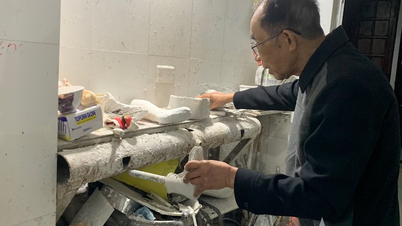

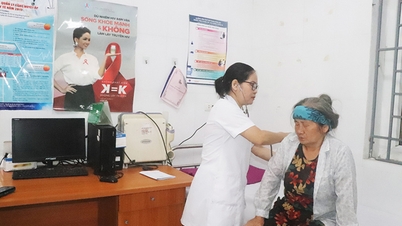

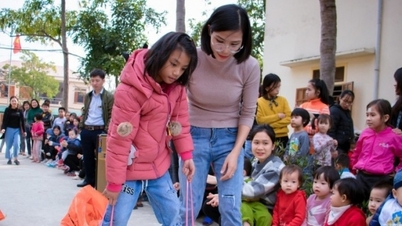

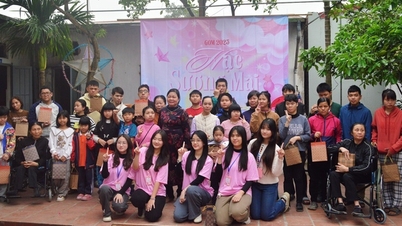

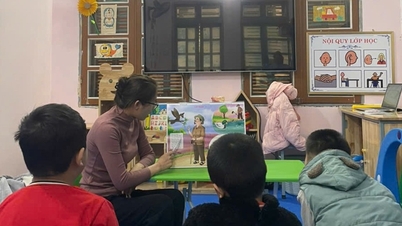






![[Video] Vietnam strives to master the technology to produce 15 types of vaccines by 2030](https://vphoto.vietnam.vn/thumb/402x226/vietnam/resource/IMAGE/2025/5/30/9b660538f5aa46daaff8b19dc9ca8204)





















































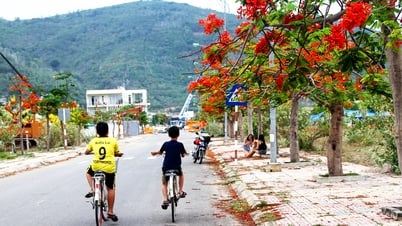

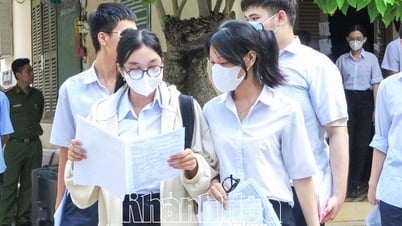

















Comment (0)